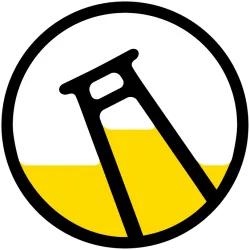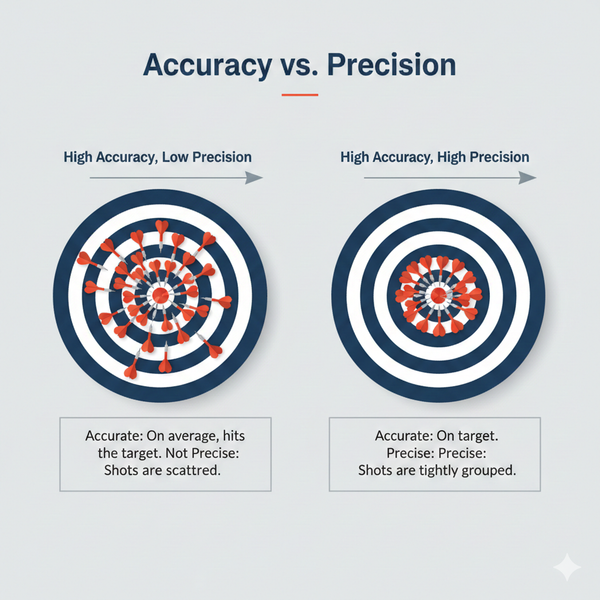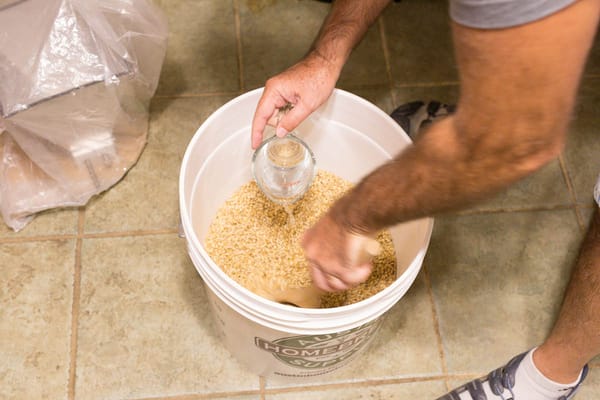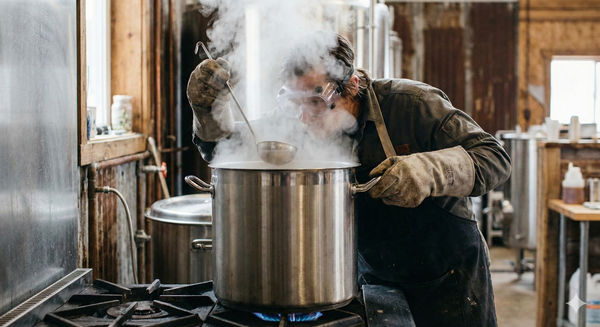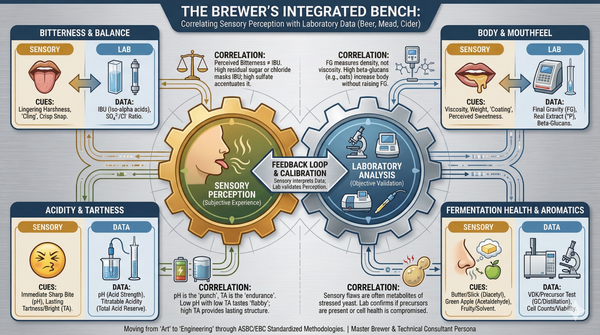There is water in your beer...

The general sensibility is that if the water tastes good, you can brew good beer with it. While I agree with that statement, we have a "calibration" and observation problem. We tend to become blind to flaws in things we are exposed to every day. I have adapted to the drinking water here, especially since it was so horrible in the last place I lived. Often times, we only notice things if they are fairly different. We actually won't drink the water in town, because it tastes much different than here at home. Also - "taste" is extremely subjective. So what I think tastes good and what you think taste good are likely different. Bottom line though, while my water is extremely safe and ok taste wise, it is NOT good brewing liquor!
At the time of this writing, I lived on the edge of Bastrop Texas, on the west side, just north of a little community called Cedar Creek. Despite being within Bastrop city limits, we are on a rural water supply. Now I don't wish to complain too much about their service, but the water is impossible to brew with. I spent a bit of time on the phone with their water quality techs, got their take on the water quality, and did a ton of research on how a brewer should handle their water. I want to touch on a few of those things later, but let me say this - there is no reason to take your water service's word when there are inexpensive ways to have your water tested. The water service tech's numbers didn't balance and were fairly bad (for brewing). My Ward Lab's report confirmed that it was much worse than reported by the tech.
This is what you get from Ward Labs (Brewer's Report, similar to their home water quality)
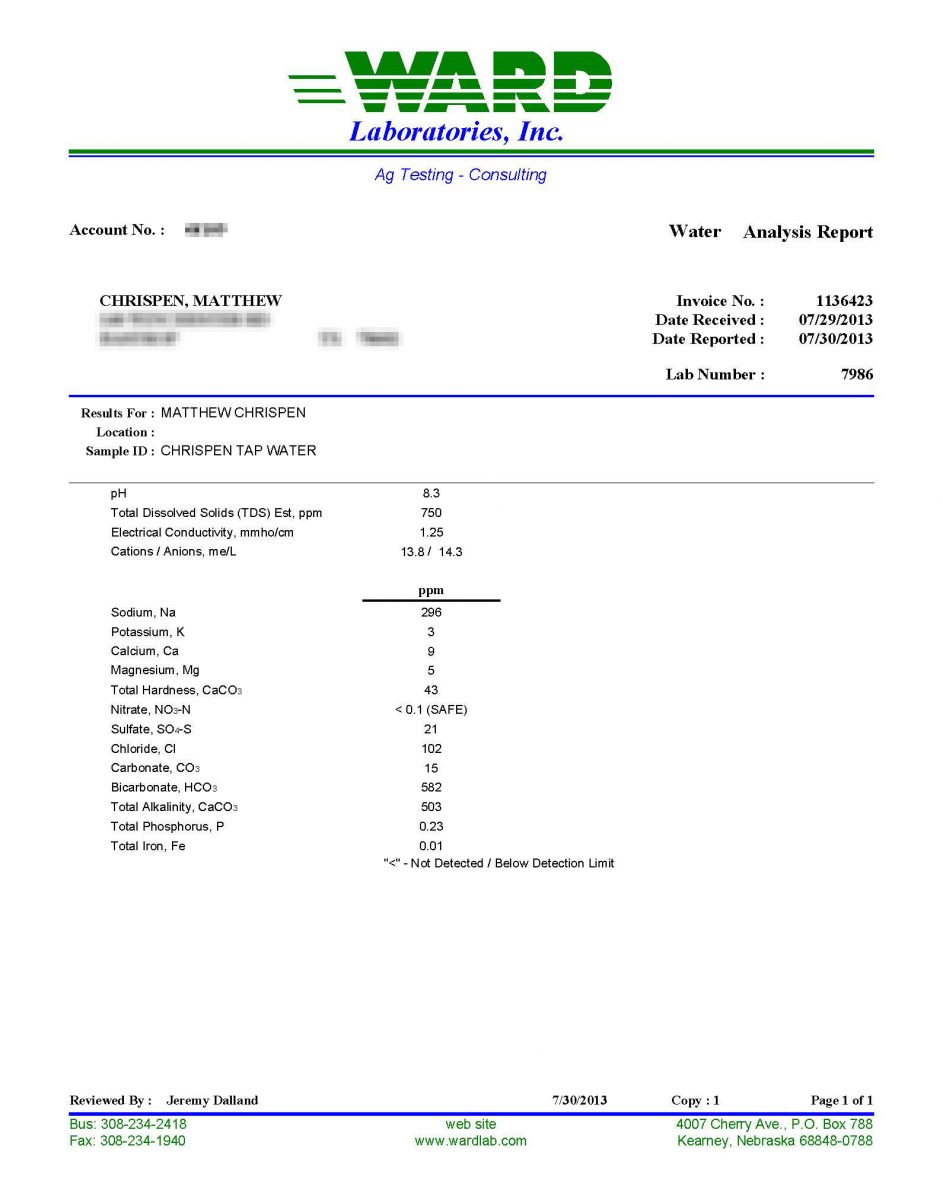
pH: 8.3, 7.7 per technician
TDS: 750
Sodium, Na: 296 ppm, 222 per tech
Potassium, K: 3 ppm
Calcium, Ca: 9 ppm, 8.2 per tech
Magnesium, Mg: 5 ppm, 4.7 per tech
Total Hardness, CaCO3: 43 ppm
Sulfate, SO4-S; 21 ppm, 83 per tech
Chloride, Cl: 102 ppm, 66 per tech
Carbonate, CO3: 15 ppm
Bicarbonate, HCO3: 582 ppm, 357 per tech
So for the most important details for a brewer, the local water company technician was way off. Now I am not up for a pissing match between Ward Labs and a rural water company, merely showing that a brewer needs to know with some certainty what is in the water - if that water is not making great beer. I am missing Calcium and Magnesium, critical to yeast health, and that bicarb level makes reaching mash pH very difficult without large acid additions, which approach taste thresholds. And forget making a light colored beer at all - I need to be in the low 5 pH range to make a truly "PALE" anything!
So it's the water's fault. Not really - it's mine for not measuring sooner, and making the proper adjustments to my water schedule. In fact, I have been all over the map - brewing with bottled spring water, cutting tap with distilled water, etc. None have been satisfactory.
- Bottle spring water: good results, but not great. No snap in IPA or APA's, and slick mouthfeel in some Belgians. Tried a few adjustments, like gypsum or calcium chloride, but shooting in the dark without a baseline.
- 50% Tap / 50% RO/Distilled: First, it's a real pain to buy distilled in bulk. I cannot find 5 gallon distilled - so it's a cart full of 1 gallon plastic. Second, look at the SODIUM content. 50/50 still keeps more than 100 ppm of Na in the mix. Not good.
- Campden Tablets on filtered tap: Campden has helped a lot with the chlorine byproducts and off flavors, but I swear occasionally I can taste sulfur when there should not be any.
So my next steps are the following:
- Acquire 20 gallons of pure RO/DI water.
- Make MINOR salt additions to create a target profile (APA, etc.)
- Brew and compare side by side with an identical recipe (THIS IS KEY) and seek some outside opinions.
- Measure impact on Mash pH, Extract Efficiency, Boil pH, Fermentation Attenuation
- If this makes perceptibly better beer, buy a RO system for brewing, and work deliberate water preparation into my schedule!
For more information on water and brewing, visit http://www.homebrewtalk.com/f128/ and read the "A Brewing Water Chemistry Primer" and ask questions. You can get highly qualified and expert advice.
Also - look for John Palmer's book on Water should it ever finally get released! Slated for October...
Ward Laboratories has been excellent, like any fine Nebraska establishment!
